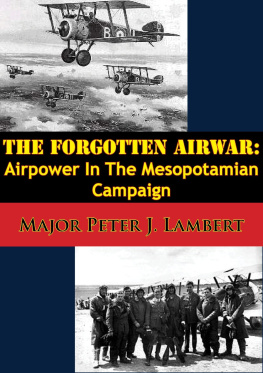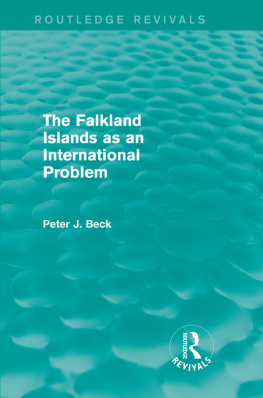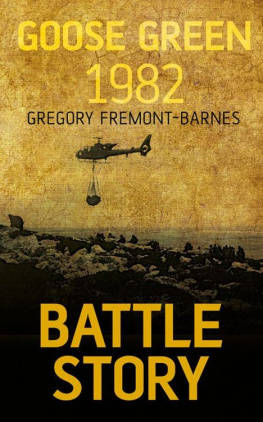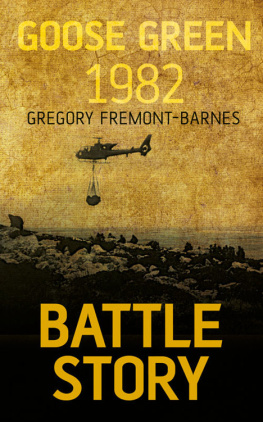This edition is published by PICKLE PARTNERS PUBLISHINGwww.picklepartnerspublishing.com
To join our mailing list for new titles or for issues with our books picklepublishing@gmail.com
Or on Facebook
Text originally published in 2002 under the same title.
Pickle Partners Publishing 2015, all rights reserved. No part of this publication may be reproduced, stored in a retrieval system or transmitted by any means, electrical, mechanical or otherwise without the written permission of the copyright holder.
Publishers Note
Although in most cases we have retained the Authors original spelling and grammar to authentically reproduce the work of the Author and the original intent of such material, some additional notes and clarifications have been added for the modern readers benefit.
We have also made every effort to include all maps and illustrations of the original edition the limitations of formatting do not allow of including larger maps, we will upload as many of these maps as possible.
SEA-BASED AIRPOWERTHE DECISIVE FACTOR IN EXPEDITIONARY OPERATIONS?
NORWAY 1940
FALKLAND ISLANDS 1982
by
Major Willard A. Buhl
EXECUTIVE SUMMARY
Thesis
This essay examines the British use of sea-based aviation in support of two modern amphibious campaigns: the British campaign in Norway in 1940 and in the Falkland Islands War in 1982. The purpose is to determine whether or not aircraft carriers (sea-based aviation) were at the root of the success or failure of British efforts.
Discussion
In April 1940, there were no airfields in central Norway capable of supporting modern, high performance aircraft. As the Norwegian campaign unfolded and the British faced a significant land-based air threat from the Luftwaffe , they failed to appreciate the tactical and operational potential of sea-based aviation. At the same time, British naval aircraft were technically inferior in design and capability compared to their Luftwaffe land-based counterparts in 1940. Nevertheless, despite determined attacks on British naval assets at the tactical level, at the operational level, the German command limited their campaign goals and did not exploit their advantage in the air to the extent possible. Their actions did, however, place great pressure on British sea based lines of communication in central Norway, the operational pivot of the campaign.
In 1982, against the Argentines, the British faced another opponent with superior land-based aviation. Although the British fully appreciated the need for air superiority, they employed a tactical scheme not unlike what had occurred in Norway. Nevertheless, the British were able to successfully contest the airspace above the Falklands and ultimately succeeded in defeating Argentine ground forces and ejecting them from the islands.
Conclusions
In Norway the British were able to execute successful counter-landings in northern and central Norway in April 1940. In the far north (Narvik area), where their forces could operate at the extreme range of German land-based airpower, the British achieved tactical success and periods of local air superiority. In central Norway (Trondheim area), the operational pivot of their campaign, they were unable to sustain their forces ashore which were exposed to continuous and energetic German air operations. {1} The British logistical situation became desperate when the Luftwaffe destroyed the two principle ports supporting landing force operations in central Norway. The Luftwaffe enjoyed air supremacy in central Norway due to a complete absence of allied antiaircraft weapons ashore and an Allied air defense that was limited to warships and British carrier-borne aircraft. The British carrier task force commander, Vice Admiral Wells, positioned his two carriers, Ark Royal and Glorious , 120 miles off the coast of Norway. Wells was not confident his embarked aircraft could sufficiently protect his carriers from German land-based aircraft, and ordered operational constraints to ensure the survivability of his aircraft carriers. With the British unable to contest the air, the ground forces ashore could not be sustained.
In the Falklands in 1982, the British again faced an enemy with numerically superior land-based airpower. Employing tactics similar to those used in the Norwegian campaign in 1940, the British task force commander, Vice Admiral John Woodward, positioned his two carriers, Invincible and Hermes , at the extreme eastern end of the tactical engagement area. The carriers position allowed only 20-minutes time on station for the limited number of embarked Harriers. Although not optimal for combat air patrol over the task force and close air support for operations ashore, the British Harriers were able to gain and maintain air parity, and destroyed enough of their Argentine adversaries to enable successful landings and a successful campaign ashore.
Drawing upon the examples above, certain inferences can be drawn from which certain conclusions may be reached. Expeditionary Maneuver Warfare (EMW) operations and sustainable littoral power projection will require versatile and flexible sea-based airpower. Much as the British expeditionary forces faced land-based airpower threats in Norway in 1940 and the Falkland Islands in 1982, U.S. aircraft carriers will be required to establish local air superiority over the fleet. Whereas land-based aircraft can attack fleets from great distances, current land-based fighters cannot protect the fleet from attack without extended aerial refueling. When air superiority cannot be maintained over the fleet, as evidenced in Norway and the Falklands, naval forces become prey to land-based airpower. Power projection from the sea occurs as a result of maintaining local air superiority, not in spite of it. Naval aviation exists to provide air superiority for naval fleets and sealift assets. Power projection from the sea is possible in large part because of air superiority. Until a space-based system capable of providing air superiority for ships at sea is fielded, legacy platforms such as aircraft carriers and their embarked air wings, despite their high cost, will remain essential naval warfare platforms. Further, however, and perhaps of greatest importance to this study, amphibious forces ashore cannot rely on aircraft carrier (sea-based) air support if a credible land-based aircraft or missile threat to supporting aircraft carriers exists.
METHODOLOGY
This essay reviews the validity of sea-based airpower in support of a modern amphibious campaign in order to determine whether or not aircraft carriers are essential to the success of EMW.
Chapter one provides a case study on the British Campaign in Norway in 1940, focusing on the strategic background, operational planning, and the use of airpower.
(1) The literature indicates that the British failed to grasp the tactical and operational capabilities of sea-based aviation in the Norwegian Campaign of 1940. Moreover, British naval aircraft like the Swordfish Biplane were technically inferior in design and capability compared to their German land-based counterparts.
(2) However, despite determined attacks on British naval assets at the tactical level, at the operational level, the German command limited their campaign goals to support of tactical ground operations and destruction of port facilities.









